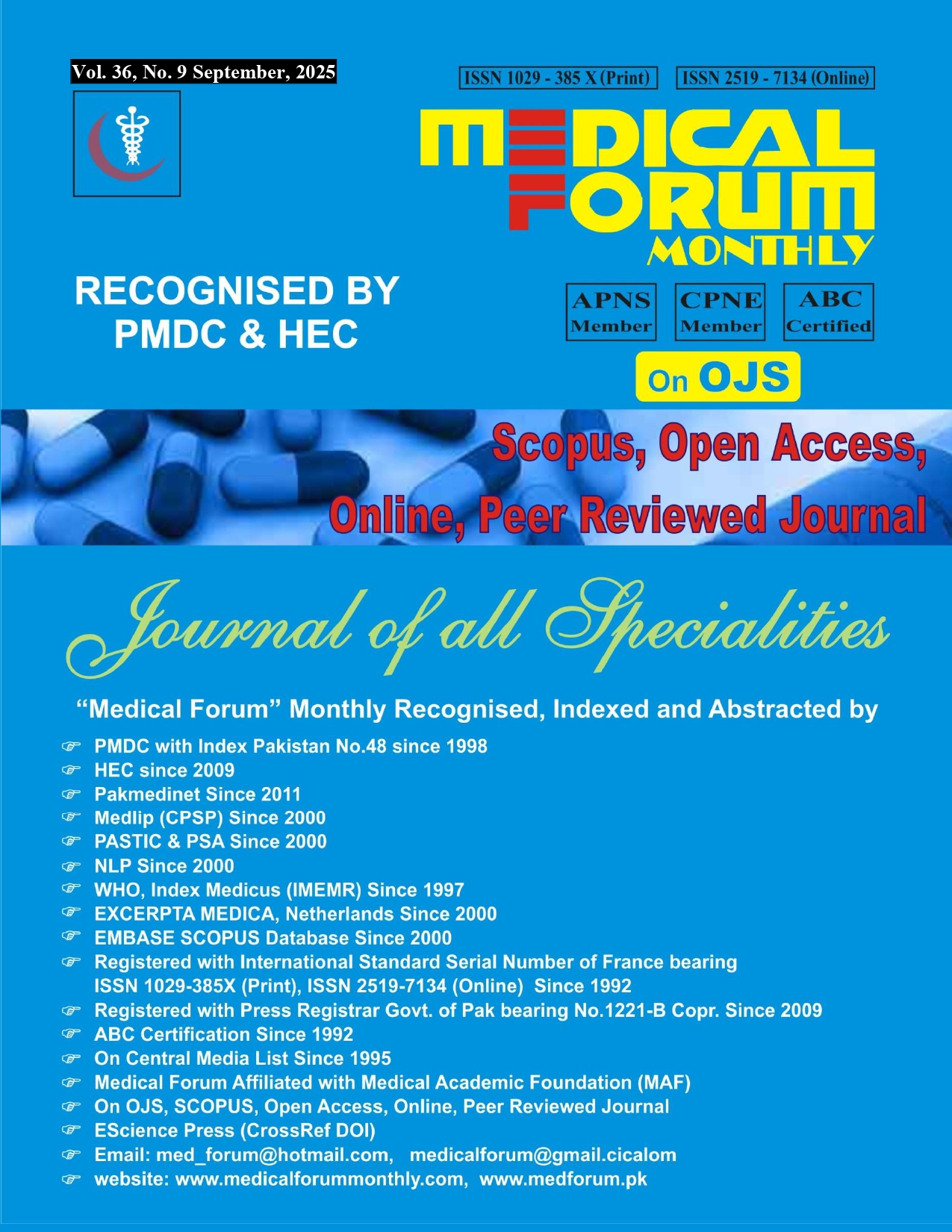The Effect of Vitamin D SNP FokI (rs2228570) and ApaI (rs7975232) on Axial Spondyloarthritis in Patients on Biological Treatment
DOI:
https://doi.org/10.60110/medforum.360915Keywords:
Axial spondyloarthritis, Vitamin D receptor, FokI; ApaI, infliximabAbstract
Objective: Examine associations between FokI and ApaI genotypes and axSpA disease activity, extra‐articular manifestations (EAMs), and infliximab (INF) response in Iraqi patients.
Study Design: Cross-sectional study
Place and Duration of Study: This study was conducted at the Baghdad Tertiary Centers from 1st August 2024 to 3th December 2024.
Methods: This cross-sectional analysis of 150 axSpA patients on INF (≥3 months) at Baghdad Tertiary Centers. Disease activity was staged by ASDAS; genotypes were determined by PCR‐RFLP. Logistic models adjusted for age, sex, smoking, and disease duration assessed genotype-phenotype links; serum VDR activity and an INF “effect‐length” index were evaluated.
Results: The mean age 38.8±8.9 years; 72% male; smokers 30%. FokI showed CC 60% and CT 40% (TT absent). CC was confined to inactive ASDAS and associated with remission (OR 19.2; p=0.04), whereas CT increased odds of high activity (OR 3.27; p=0.001). CT carriers had lower frequencies of uveitis, dactylitis, and UTI. ApaI genotypes did not associate with ASDAS or EAMs. Neither SNP related to serum VDR activity or INF effect‐length.
Conclusions: FokI acts as a phenotypic modifier—CC protective for axial activity; CT associated with higher activity yet fewer select EAMs-while ApaI appears neutral. Pharmacodynamic measures were unaffected.
































 This work is licensed under a
This work is licensed under a 